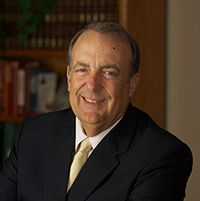Dr. Guy Baker | Source | Managing Director at Wealth Team Alliance

Dr. Guy Baker
Dr. Guy Baker. MBA, MSFS, MSM, CFP is the founding partner and managing director of the Wealth Teams Alliance, an RIA in Irvine, California. He was the 77th recipient of the John Newton Russell Distinguished Service Award and the California NAIFA Norman G. Levine Distinguished Service award. In addition, he was chosen by the National Association of Estate Planners and Councils as a distinguished Estate Planner and an honored member of their Hall of Fame. Despite his many years of industry experience and accolades, Guy continues to better himself for the benefit of his clients. At 73, he finished a PhD in Retirement and Financial Services at the American College, where he studied the newest strategies in retirement income planning. As a frequent writer and speaker, he has addressed advisors in more than thirty countries, appeared on numerous talk shows, podcasts and tele-video conferences, and spoken several times from the Main Platform of the Million Dollar Round Table (MDRT). He has lectured at various estate planning council meetings, as well as being on the faculty of CLU institutes, and was featured at several CLU conferences. He served as President of Million Dollar Round Table an industry trade association with 100,000 members in 65 countries. He also was President of the MDRT Foundation. His professionals honors are many, including having qualified for Top of the Table (the top 1% of all financial professionals) since 1977.
-

Wealth Team Alliance (https://www.wealth-teams.com)
Managing Director -

BTA Advisory Group (https://www.btagroup.net)
Managing Director
-
What You Can (And Should) Do About Your 401(k) Fees
In all the headlines decrying “excessive” fees, are you about to make a “penny-wise/pound-foolish” mistake?
Article -
Monetary Policy: How Central Banks Regulate The Economy
Monetary policy is the bedrock of any nation’s economic policy, and everyone from part-time workers to huge financial institutions, both foreign and domestic, are impacted as it shifts. Here’s how managing the supply of money affects you and the rest of the economy. What Is Monetary Policy? Centra
Article -
-
CDs are typically used by investors who want liquidity and safety in the short run. For instance, they may have just sold a building or a business and are wary of deploying their gains right away into a new investment. They often want a safe place to park the money until they decide their next financial move.
-
Lower balances mean less capital to produce income in retirement. It would be great to be able to repay the withdrawals, but it is unlikely many will be able to afford to do so. The better way is to increase or at least maintain the current level of savings.
-
Debt has escalated during the crisis as people have had to find ways to pay their most urgent bills. Once order is restored, the debts will have to be eliminated.



